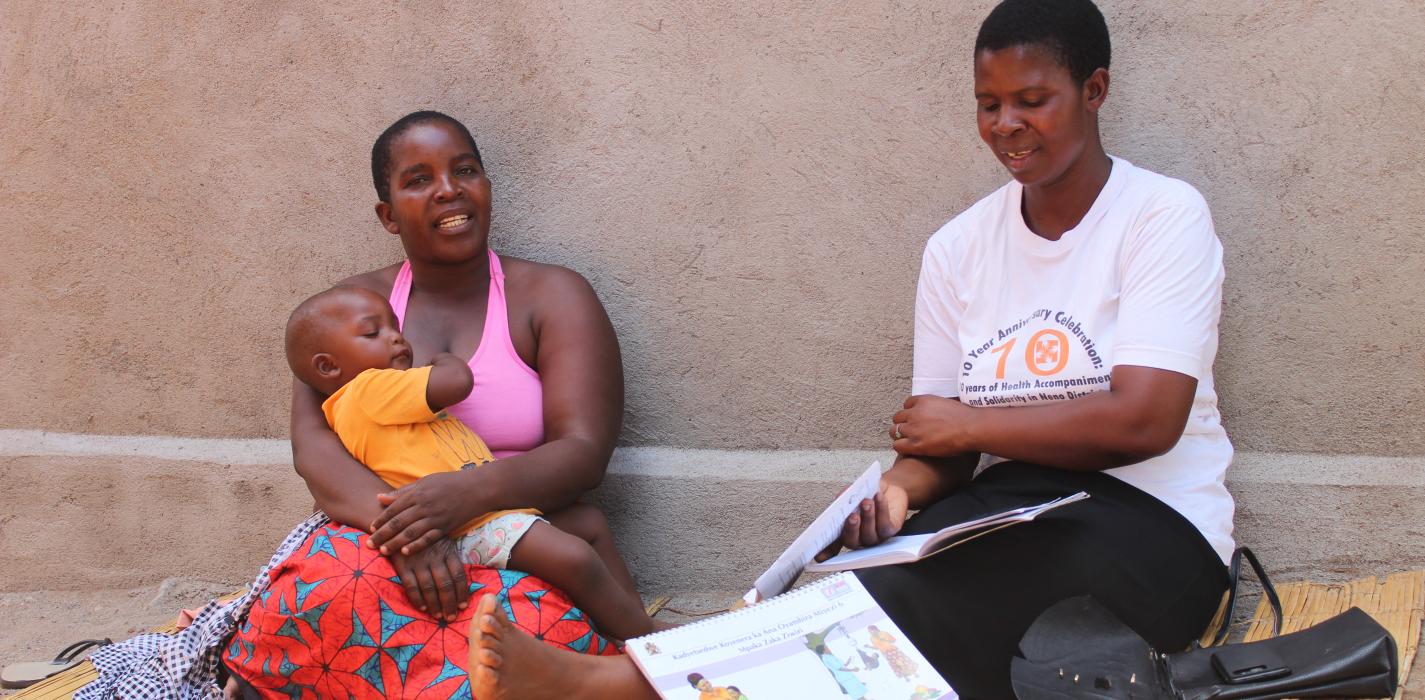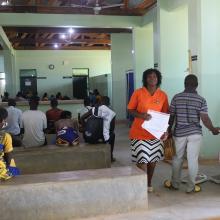Pediatrics Development Clinic

PDC is a department within PIH Malawi that ensures children receive the care they need to thrive physically, cognitively, and emotionally. PDC aims to enhance the quality of life for children up to the age of 5.
Our Impact
Operating under the umbrella of the Chronic Care Service Unit, PDC focuses on providing comprehensive medical, developmental, and nutritional support to high-risk infants and children. Recognizing the critical importance of early intervention, the PDC program dedicates itself to improving the quality of life for newborns up to the age of 5 years.
The program offers a wide range of services that encompass monitoring at-risk children. Since its inception, PDC has successfully enrolled 456 children into the program (as of December 2023).
-
ONEEnrollment into PDC
Pediatrics Development Clinic has successfully enrolled 456 children into the program.
-
TWODevelopmental and parental education
Mothers and caregivers are given developmental and parental education on every visit. This is an effective way of helping vulnerable children and those with developmental delays by providing some supportive feedback to families
-
THREEPhysiotherapy
At 3 months, the first developmental assessment is done on all infants, to assess the sequence of skills and functions that develop a child over time. As early as 3 months, infants with developmental delays are enrolled in physiotherapy.
The Pediatrics Development Clinic (PDC), established in 2021 at Neno District Hospital, is a specialized program designed to cater to the unique needs of under 5 children. Since its inception, PDC has successfully enrolled 456 children into the program (as of December 2023).
Operating under the umbrella of the Chronic Care Service Unit, PDC focuses on providing comprehensive medical, developmental, and nutritional support to high-risk infants and children. By intervening early in their lives, the program aims to ensure that not only their physical well-being but also their cognitive and social-emotion of the children is developing well, by looking at different areas of their lives.
Ensuring Holistic Development:
Recognizing the critical importance of early intervention, the PDC program dedicates itself to improving the quality of life for newborns up to the age of 5 years. The program offers a wide range of services that encompass monitoring at-risk children. This is done by following these steps;
Providing Screening Services
From the moment an infant is enrolled in PDC weight is checked on every visit. This is a parameter that entails how much the infant has gained over a certain period. Weight gain is very important because it shows how much the infant has grown. From 6 months above all infants have weight, height, and MUAC check. This helps to calculate the weight for age and weight for height using the World Health Organization’s (WHO) child growth standard. Any child below -1 z-score is considered malnourished but with further grading.
Developmental and Parental Education
Mothers and caregivers are given developmental and parental education on every visit. This is an effective way of helping vulnerable children and those with developmental delays by providing some supportive feedback to families. This encourages them to work together with clinic staff and take an active part in managing their children. Mothers and caregivers feel confident and good about giving care to their children despite the stigma and discrimination experienced in the community.
Peer Group Support
The program had plans to identify expert mothers from the program (those enrolled and discharged from it). These would support mothers in the clinic and certain home locations, especially when conducting home visits.
Physiotherapy
At 3 months the first developmental assessment is done on all infants, to assess the sequence of skills and functions that develop a child over time. As early as 3 months, infants with developmental delays are enrolled in physiotherapy. During physiotherapy sessions development skills are taught to the infants to promote independence. This service helps to improve mobility, reduce muscle spasms, and build balance.
Feeding Assessment Counseling
Depending on the assessment findings from screening all children are given feeding counseling. Below 6 months of exclusive breastfeeding while the mother is having balanced nutritional intake to meet the infants’ nutritional needs. From 6 months above all infants are started on supplementary feeds with continued breastfeeding until 2 years of age. From 6 months above those with malnutrition are given likuni phala or special porridge made from mixing maize, soya beans, groundnuts, and dried local vegetables. The feeding counseling includes the type of food and the number of times the infant should be fed throughout the day. Mothers are taught about a balanced diet containing 6 food groups.
Support for Both Social and Guardian Mental Health
Assessments in PDC are not only done for infants but also for mothers and caregivers. Considering that taking care of developmental delay and high-risk infants is a handful to parents which in the end may bring mental stress and anxiety. Mental health assessments are done on mothers and those with issues such as depression are referred to IC3D for counseling and support.
Comprehensive Support Network:
The PDC serves as a vital link between children and other essential services. By collaborating with mental health professionals, the Advanced NCD (Non-Communicable Diseases) team, physiotherapists, palliative care specialists, speech and occupational therapy, intensive chronic care clinic, and the nutritional rehabilitation clinic, PDC ensures that children receive holistic care tailored to their specific needs.
